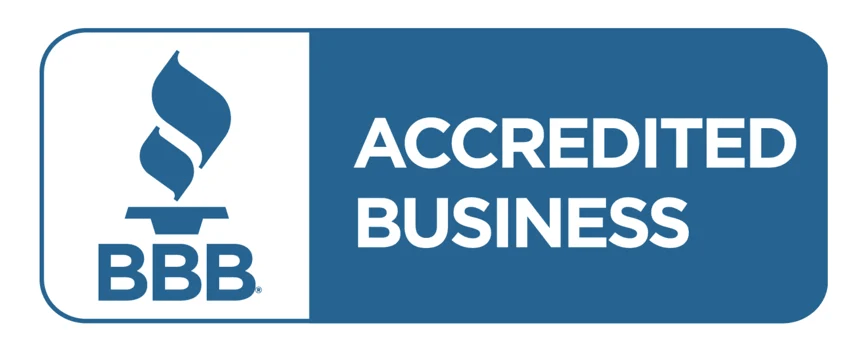How to Sell Rental Property Without Paying Taxes in Missouri
If you're a property owner in Missouri, you understand the financial benefits of rental properties. However, selling a rental property can come with hefty tax implications. Understanding the complexities of tax laws when it comes to rental property sales is essential to maximize your profits.
What Is a Capital Gains Tax?
Before diving into the strategies to avoid paying taxes on rental property sales, it's crucial to understand what a capital gains tax is in Missouri. A capital gains tax is a tax imposed on the profit made from selling a property or asset. In Missouri, the capital gains tax rate is based on your tax bracket and the length of time you owned the property.
When it comes to rental properties, a capital gains tax applies to the profit you make from selling the property. This means that if you sell a rental property for more than what you initially paid for it, you will owe taxes on the gain. However, there are strategies you can implement to minimize or defer paying capital gains taxes on your rental property sales.
What Is the Difference Between Short and Long-Term Capital Gains Tax?
The length of time you own a rental property plays a significant role in the amount of capital gains tax you may owe. Understanding the difference between short-term and long-term capital gains tax is essential for maximizing your tax benefits.
Short-Term Capital Gains Tax
Short-term capital gains tax applies to properties owned for less than a year. The tax rate for short-term capital gains is typically higher than long-term capital gains. If you sell a rental property within a year of owning it, you will likely face a higher tax rate on the profits.
Long-Term Capital Gains Tax
Long-term capital gains tax applies to properties owned for more than a year. The tax rate for long-term capital gains is generally lower than short-term capital gains. If you hold onto your rental property for longer than a year before selling, you may qualify for a lower tax rate, reducing your overall tax liabilities.
Tax Exemptions and Deductions
When selling your rental property in Missouri, there are tax exemptions and deductions available that can help reduce your taxable income and potentially eliminate the need to pay taxes altogether.
There are several tax exemptions available when selling your rental property in Missouri. One common exemption is the primary residence exemption. If you have lived in the rental property for at least two out of the five years before selling, you may qualify for this exemption. It allows you to exclude up to $250,000 of capital gains if you're single or $500,000 if you're married, from your taxable income.
One significant deduction is the depreciation deduction. Rental properties can be depreciated over time, allowing you to deduct a portion of the property's value each year. This depreciation deduction can significantly reduce your taxable income, potentially eliminating the need to pay taxes on the sale.
1031 Exchange: A Key Strategy
A 1031 exchange is a provision in the tax code that allows property owners to defer paying capital gains tax if they reinvest the proceeds from the sale into another property of equal or greater value. This strategy is particularly beneficial for real estate investors looking to grow their portfolio.
By utilizing a 1031 exchange, you can defer paying capital gains tax on the sale of your rental property. Instead of recognizing the gain and owing taxes, you can reinvest the proceeds into another property, allowing you to defer the tax liability until a future sale. This strategy provides real estate investors with the opportunity to continuously grow their portfolio without the burden of immediate tax payments.
How to Execute a 1031 Exchange in Missouri
Executing a 1031 exchange requires careful planning and adherence to specific guidelines. Here's a step-by-step guide to help you navigate the process:
- Identify a Qualified Intermediary (QI): A QI is a neutral third party who will facilitate the exchange process. It's essential to work with a reputable QI to ensure compliance with IRS regulations.
- List your property for sale: Once you've identified the property you want to sell, list it on the market.
- Identify replacement properties: Begin searching for like-kind properties that you can acquire with the proceeds from the sale.
- Initiate the exchange: Once you've found a buyer for your property and identified the replacement property, your QI will prepare the necessary exchange documents.
- Sell your property: Proceed with closing the sale of your rental property.
- Acquire the replacement property: Within 45 days of selling your property, identify the replacement property and provide written notice to your QI.
Converting Rental Property into a Primary Residence
Another strategy to minimize tax liabilities when selling a rental property is by converting it into your primary residence. This strategy allows you to take advantage of the primary residence exemption, potentially eliminating the need to pay capital gains tax altogether.
To convert a rental property into a primary residence, you must establish it as your main home. This means you must meet the IRS rules and occupancy requirements, which typically include living in the property for at least two years before selling.
The IRS requires you to meet specific rules and occupancy requirements to qualify for the primary residence exemption. These include:
- Ownership and use: You must own the property and use it as your primary residence for at least two out of the five years before selling.
- Proximity: The property must be within a reasonable distance from your workplace or other essential locations.
- Intent: You must have the intention of making the property your primary residence at the time of purchase.
Converting a rental property into a primary residence offers several tax benefits. One major benefit is the primary residence exemption, which allows you to exclude up to $250,000 of capital gains if you're single or $500,000 if you're married, from your taxable income. Additionally, by making the property your primary residence, you may also qualify for other tax deductions and benefits associated with homeownership.
Offsetting Gains with Losses
Tax-loss harvesting is a strategy that allows you to offset capital gains by utilizing losses from other investments. By strategically timing the sale of your rental property and other investments, you can reduce or eliminate your capital gains tax liability.
To use tax-loss harvesting to offset capital gains, you need to sell investments that have experienced losses. By selling these investments, you can deduct the losses from your capital gains, reducing your taxable income. It's important to note that there are timing and rules associated with tax-loss harvesting, so consulting with a tax professional is recommended.
The timing and rules for tax-loss harvesting can impact its effectiveness. Here are a few key considerations:
- Timing: To offset capital gains in a specific tax year, the losses must be realized within the same year.
- Wash-sale rules: The IRS has wash-sale rules that prevent you from repurchasing the same or a substantially similar investment within 30 days of selling it at a loss. Violating these rules could disallow the deduction.
Utilizing Installment Sales
An installment sale occurs when you sell your rental property and receive payments from the buyer over an extended period. Instead of recognizing the entire gain in the year of sale, you only recognize a portion of the gain each year as you receive payments. This allows you to spread out the tax liability over time, potentially reducing your overall tax burden.
By utilizing installment sales, you can spread out the recognition of capital gains over several years. This can potentially reduce your tax liability by keeping you in a lower tax bracket and minimizing the impact of the capital gains on your taxable income. It's important to consult with a tax professional to ensure compliance with IRS regulations when executing an installment sale.
Retirement Accounts and Real Estate Investments
Using self-directed IRAs or other retirement accounts for real estate investments can impact taxes in several ways. One significant benefit is the ability to defer taxes on rental income and capital gains. Rental income generated within a retirement account is tax-deferred until distributions are made. Additionally, any capital gains from the sale of real estate within a retirement account are also tax-deferred.
There are specific rules and regulations surrounding the use of retirement accounts for real estate investments, so consulting with a financial advisor or tax professional is recommended.
Charitable Remainder Trusts (CRT)
A charitable remainder trust (CRT) is a legal arrangement where you transfer your rental property into a trust, and the trust sells the property. The proceeds from the sale are invested, providing you with an income stream for a specified period. At the end of the trust's term, the remaining assets are donated to a charitable organization.
By utilizing a charitable remainder trust (CRT), you can sell your rental property, receive an income stream, and reduce your taxes. The income stream you receive from the trust is generally tax-advantaged, and you may also qualify for a charitable deduction based on the value of the assets donated to the trust.
Legal and Regulatory Considerations
When selling a rental property in Missouri without paying taxes, there are various legal and regulatory considerations to keep in mind. Understanding the laws and regulations that apply to rental property sales is essential for a smooth and tax-efficient transaction.
When selling a rental property in Missouri, you must consider several laws and regulations, including:
- Capital gains tax laws: Understanding the tax laws surrounding capital gains in Missouri is essential to minimize your tax liabilities.
- Real estate transaction laws: Complying with laws governing real estate transactions, such as disclosure requirements, is crucial to avoid legal issues.
- IRS regulations: Familiarize yourself with IRS regulations regarding rental property sales, exemptions, and deductions to ensure compliance and maximize tax benefits.
Tax laws are subject to change, and it's essential to stay up to date with any recent changes that may impact your rental property sales. Consulting with a tax professional who specializes in real estate transactions can help ensure you're aware of any recent Missouri tax law changes and how they may affect your tax liabilities.
Sell Your House Fast in Missouri and Kansas
If you need to sell your house fast but don’t want the hassle of a traditional home sale, contact Brittco. We buy houses as-is. No repairs are needed. Avoid closing costs and realtor commissions. Close in as little as seven days. Call 913-219-5583 for a fast cash offer from our local home buyers in Missouri and Kansas.


